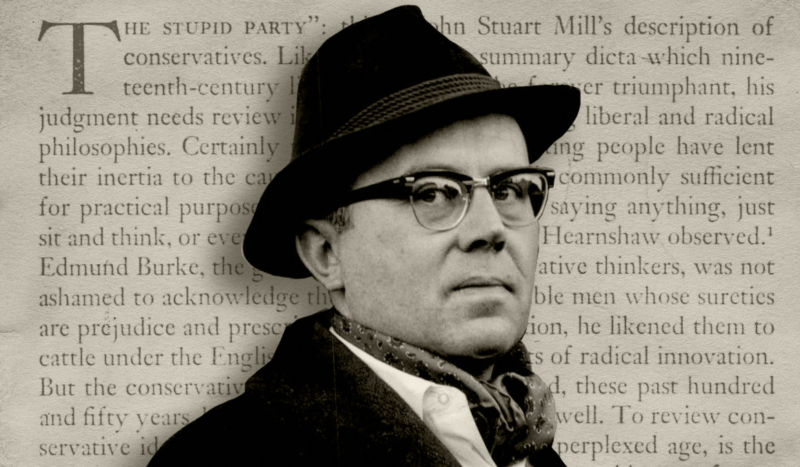
NOTE: Enjoy this excerpt from The American Daily Reader, by CatholicVote president Brian Burch and Emily Stimpson Chapman. To order the complete volume, visit the CatholicVote store today!
On October 19, 1918, the man who would create the history of conservatism was born. The man was Russell Kirk and the history he created began as his doctoral dissertation for the University of St. Andrews in Scotland. In 1953, he published it as The Conservative Mind.
In his book, Kirk traced the conservative underpinnings linking the likes of Edmund Burke, John Adams, Nathaniel Hawthorne, Benjamin Disraeli, and a host of other thinkers, writers, and statesmen. What emerged was a political philosophy essentially rooted in Catholic tradition that sought to do more than simply oppose liberalism. Rather, it attempted to balance the competing claims of freedom and order.
According to -Kirk’s philosophy, a conservative…
1. Believes in “an enduring moral order”;
2. “Adheres to custom, convention, and continuity”;
3. Recognizes that modern man is unlikely “to make any brave new discoveries in morals or politics or taste”;
4. Is guided by prudence and judges measures by their “probable long-term consequences, not merely by temporary advantage or popularity”;
5. Recognizes that the “only true forms of equality are equality at the Last Judgment and equality before a just court of law”;
6. Knows that because all men are imperfect “no perfect social order ever can be created”;
7. Understands that “freedom and property are closely linked”;
8. Upholds “voluntary community” and opposes “involuntary collectivism”;
9. “Perceives the need for prudent restraints upon power and upon human passions”;
10. “Understands that permanence and change must be recognized and reconciled in a vigorous society.”
As Kirk’s fame grew, he moved to his ancestral home in Mecosta, Michigan. There, he authored dozens of books, both fiction and non-fiction and at the age of 45, he converted to Catholicism and married. Near the end of his life, The Heritage Foundation recognized Kirk’s invaluable contributions to conservatism by naming him a distinguished fellow. Kirk died in 1994.

